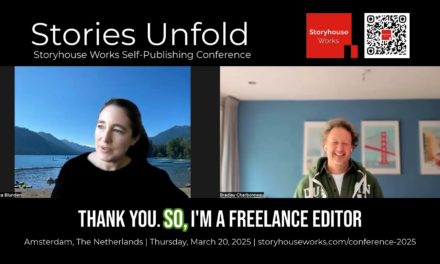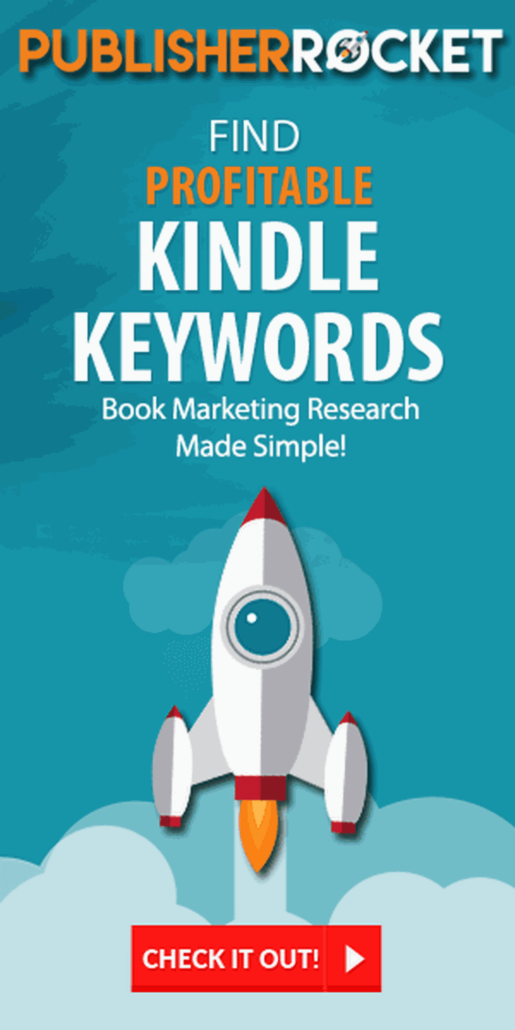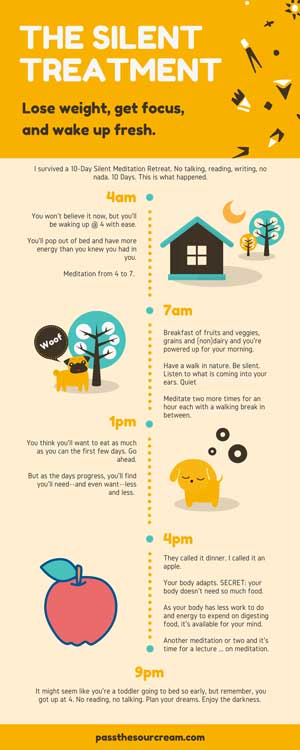
How to Develop a Writers Business Plan: Do it the “RePossible” Way

There are a lot of things I like about your Writers Business Plan — and a few things I’d revise. Let’s start with the good stuff.
“… dump in a wheelbarrow of fun. Open the ripcord and let flow the passion, love and joy while we’re at it. Because if we don’t have that in abundance, you might as well go do something not fun and get paid for that.”
This approach is not part of a typical business plan. You know that, right? I love it that you put this first, because emphasizes an important point: Being self-employed isn’t always easy, so if you’re going to work for yourself, you’d better really love what you’re doing.
“I know I’m going to succeed. It’s not that I think I will or have it all planned out how each step will lead me to success, but I just know it.”
Experience + Persistence = Confidence
That’s another important point to emphasize early. For some people, this kind of “confidence” is just wishful thinking, but in your case it arises from your extensive experience in other endeavors. It also suggests the kind of persistence that is absolutely essential for successful self-employment. There will be tough times. And you will get through them.
“ … keep in mind that this is going to be a Work in Progress. A Moveable Business Plan. It’ll change and may be scrapped completely. But we have to start somewhere.”
“Just starting” is a big step — lots of people never get that far. It’s also great that you made an initial plan, recognizing that it will move and change. There’s no way you can see into the future far enough to have every detail planned out ahead of time; you’ll need to reevaluate and refine your plan as you go along. Hooray for building in courage and flexibility!
1 + 1 = more than 2
Here’s another important point you made:
“… with partnerships and collaboration: 1 + 1 = more than 2.”
Networking, connections, partnerships, collaboration — these are crucial considerations. (I’ve collaborated with a writing partner on several big projects, and it’s my favorite way to work; 1 + 1 definitely = more than 2.)
I’d expand this thinking to include other “soft” resources. What are your own skills and experience? Who do you know, and how do their skills fit with your business needs? Perhaps you have good relationships with people who are potential clients — how do their needs fit with what you can provide? List your soft resources and brainstorm; you may come up with some surprising out-of-the-box ideas.
What box?
Speaking of out-of-the-box, I like your idea about out-of-the-box marketing:
“ … contact players who might be interested in a bit of an off-the-wall approach.”
But you’ve left “regular” marketing out of the plan. And whether it’s plain vanilla or whacky and off-the-wall, you definitely need to include a marketing plan. If you already have a big, long line of clients queued up and eager to pay for your exceptional work products, fine — that fact can be your marketing plan.
If not, you need a strategy for getting clients:
- Who is going to buy your product, and how will it benefit them?
- What are they willing to pay for what you’re providing?
- Where are your potential clients, and how are you going to reach them?
- How often will you communicate with them?
- What are you going to say to them?
- What are you going to say to them after that? And after that?
- Can you use testimonials or third-party endorsements?
- How long will it take to convert them from a potential client into a paying client?
- Will you offer special pricing for new clients?
- How will you get a second job from a client? How will you get subsequent jobs?
- Do you have both a simple, low-cost product and a more complicated one that will pull in more money?
- Will you have a loyalty program or a discount for multiple projects?
- How will you encourage clients to refer others to you? Will you have a special deal for clients who provide referrals?
You may have noticed a lot of references to special pricing — for new clients, for loyal clients, for clients who provide referrals. Everybody loves a deal, and most companies find that a well-thought-out pricing strategy can improve sales. Does your standard pricing include enough “room” for you to occasionally offer special, discounted prices?
Find a niche and fill it.
[fusion_builder_container hundred_percent=”yes” overflow=”visible”][fusion_builder_row][fusion_builder_column type=”1_1″ background_position=”left top” background_color=”” border_size=”” border_color=”” border_style=”solid” spacing=”yes” background_image=”” background_repeat=”no-repeat” padding=”” margin_top=”0px” margin_bottom=”0px” class=”” id=”” animation_type=”” animation_speed=”0.3″ animation_direction=”left” hide_on_mobile=”no” center_content=”no” min_height=”none”]
It’s instructive that you didn’t mention the actual product until almost the end of the plan. Most people begin with a product and then try to figure out how to sell it. But the tried-and-true business advice, “Find a niche and fill it,” turns that approach on its head. First, find the need; then develop the product. That’s the approach you’re taking, and it’s a smart one.
Here’s another essential consideration:
“How do you know if you reached your goal if you’re not measuring anything? … Would be great to add charts or graphs showing e.g. level of effort and then return.”
Concrete goals and measurements can be challenging; it’s tempting to skip them and just dive right into the work, especially if you love your work. It’s great that you included this, but you must take it further: You need at least a back-of-the-napkin plan that helps you figure out whether your business plan is financially viable.
For a writer, that means outlining these goals and measurements:
- How many hours a week will you produce billable output? Notice I didn’t ask how many hours a week you’ll work. There’s work (networking, marketing, billing, updating your software, maybe watching a cat video or two to improve your mood, thereby increasing the quality of your work product) … and there’s billable work. Let’s say your goal is 30 billable hours/week.
- What will your output be (volume)? Let’s say 2 articles.
- How much can you charge for it? Let’s say $400/article.
These concrete goals and measurements provide a quick way to determine how your finances might look. Two articles times $400 each comes to $800/week, times 50 weeks/year equals $40,000. Can you write two articles a week, every week? Can you sell them? Does your business plan make sense? Is it worth trying? Could you make enough money to support yourself with this plan? What are the best- and worst-case scenarios?
Of course, the answers to these questions depend on the kind of writing you’re doing. Use your own numbers, but do plug them in.
There are all kinds of reasons to resist this kind of planning. Here are a few:
- I’m just getting started, and can’t predict how much work I’ll have.
- I’m going to have a few really big jobs that will pay a lot, but I don’t have the details yet.
- It’s unrealistic to think I can know how many articles I’ll be writing, because things change. The future is unknowable.
- You have to act on faith; lots of successful business people say that if they had understood how difficult it would be to build their businesses, they would never have even tried.
- I’m already too busy working to take time off for planning.
- A specific plan like this doesn’t leave any room for serendipity, so it isn’t realistic.
- I don’t want to plan; it sucks all the creativity out of my soul!
You may think that planning sucks all the creativity out of your soul, but attempting to run a business without a plan can suck all the life out of your body. It’s essential to start with a solid business plan.
- Possible: Dive into your new business with skill and enthusiasm.
- Impossible: Plan every aspect of your new business in advance.
- Repossible: Start with a solid business plan.
Laurie McAndish King’s latest writing project is a website for authors who are launching books. She’s still working on the business plan.[/fusion_builder_column][/fusion_builder_row][/fusion_builder_container]





























